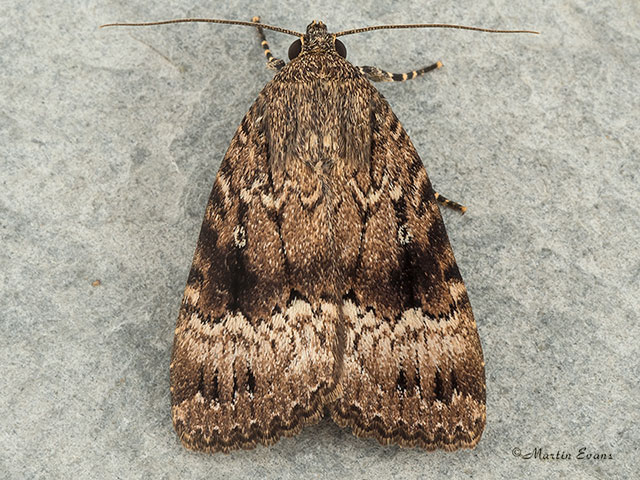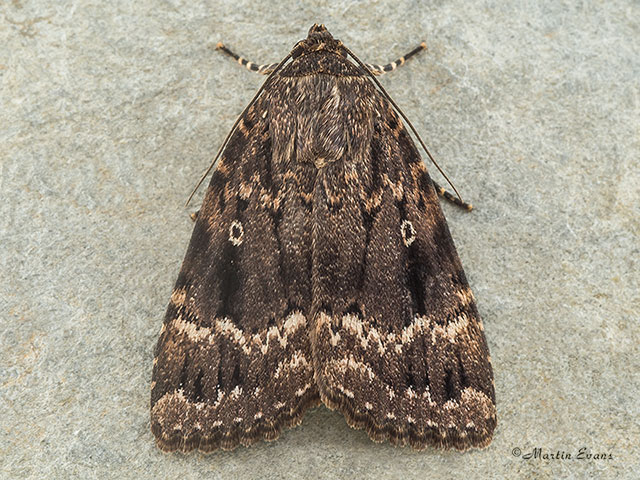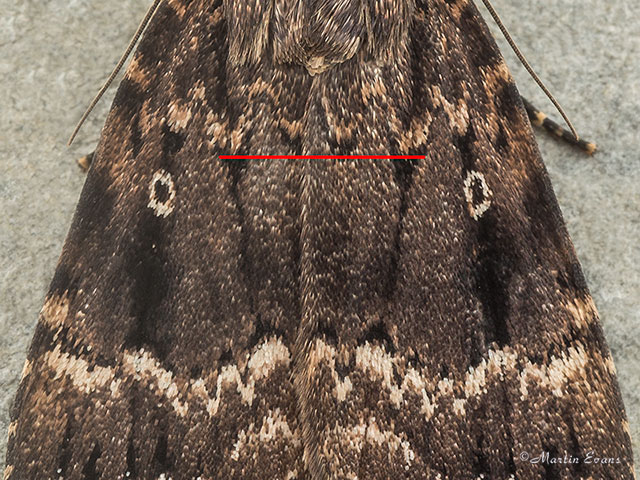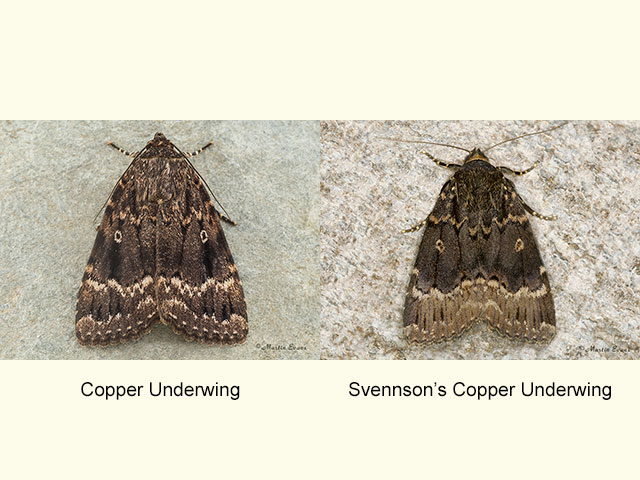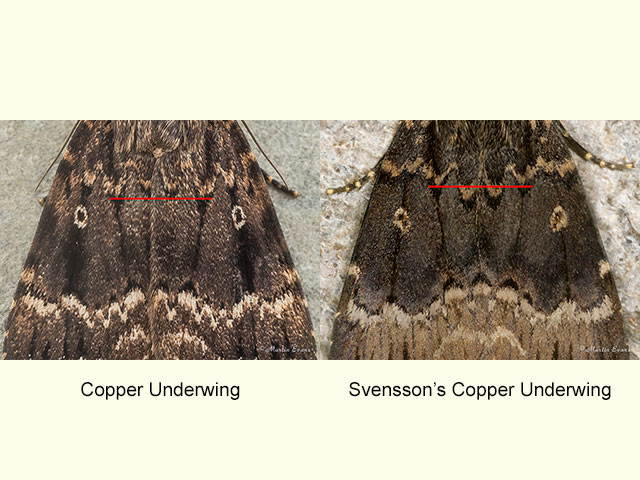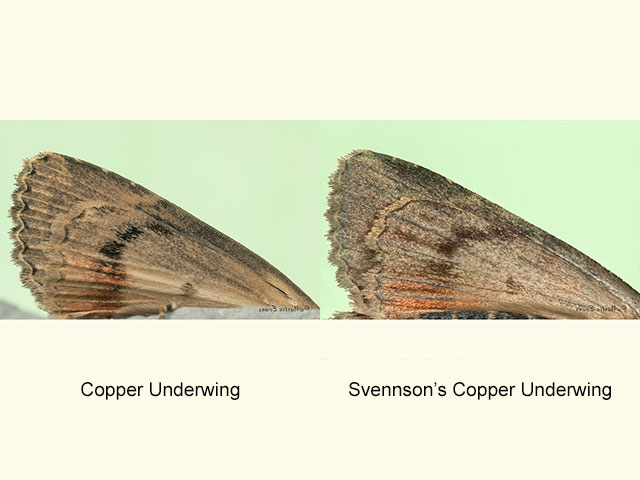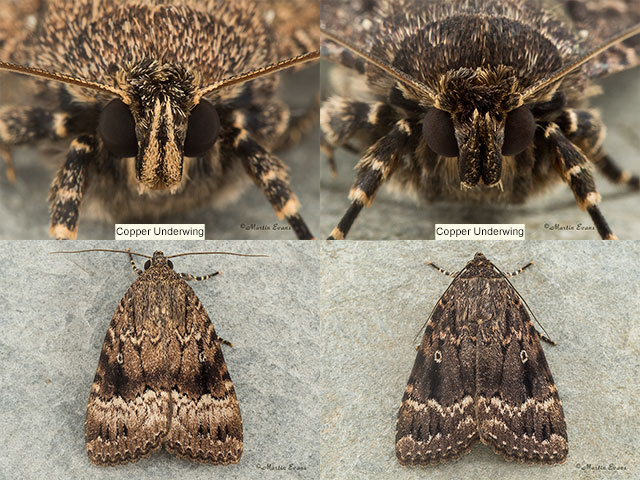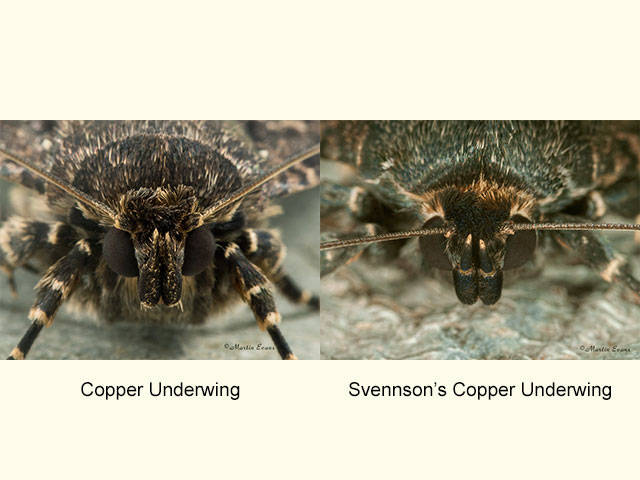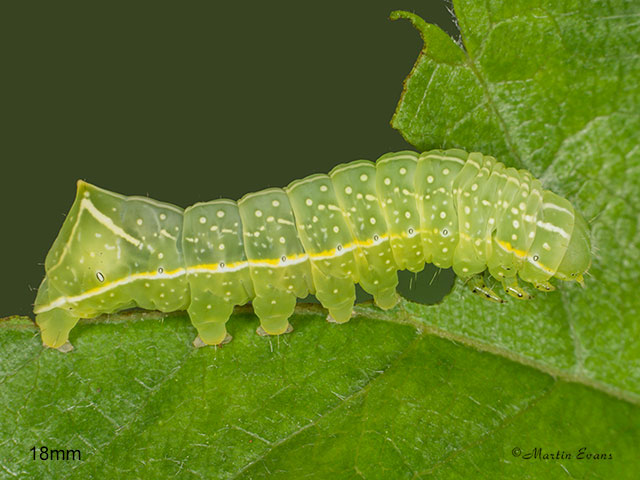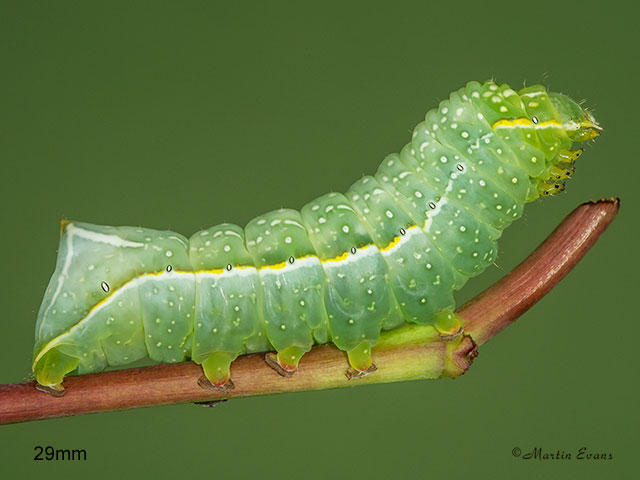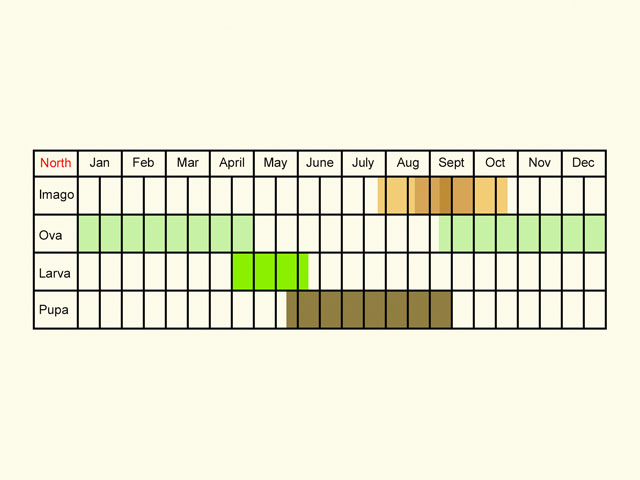Noctuidae
73.062 Copper Underwing Amphipyra pyramidea (Linnaeus, 1758)
Common
Similar species: Svensson's Copper Underwing Amphipyra berbera has copper marking on the underside of the hindwing extending inside the dark band along the trailing edge. The area inside this band has more speckling and is darker than the same area on the underside of the hindwing of Copper Underwing. The inner central cross-line forms two 'V' marks on the trailing edge of the forewing. The trailing edge 'V' is longer than the other, not equal or shorter as in Copper Underwing. The palps are dark and devoid of pale scales, but the dark form of Copper Underwing has only a few scales on dark palps and these may be removed with wear, so this is not a reliable comparison feature.
Forewing: 21 to 26mm
Habitats: Deciduous woodland, parkland, scrub, hedgerows, amenity planting and gardens.
Habits: The moth is sometimes found during the day sheltering communally in hollow trees or behind loose bark. It comes to sugar and light.
Foodplant: The larva feeds on oaks, Honeysuckle, Ash, Wild Privet, Garden Privet, Grape-vine, sallows, limes, Downy Birch, Hawthorn, Midland Hawthorn, Crab Apple, Hazel and other deciduous trees and shrubs. It pupates under the soil.
On the European mainland it has also been recorded feeding on Hornbeam, Poplar, elms, Fly Honeysuckle, Wayfaring-tree and Lilac.
